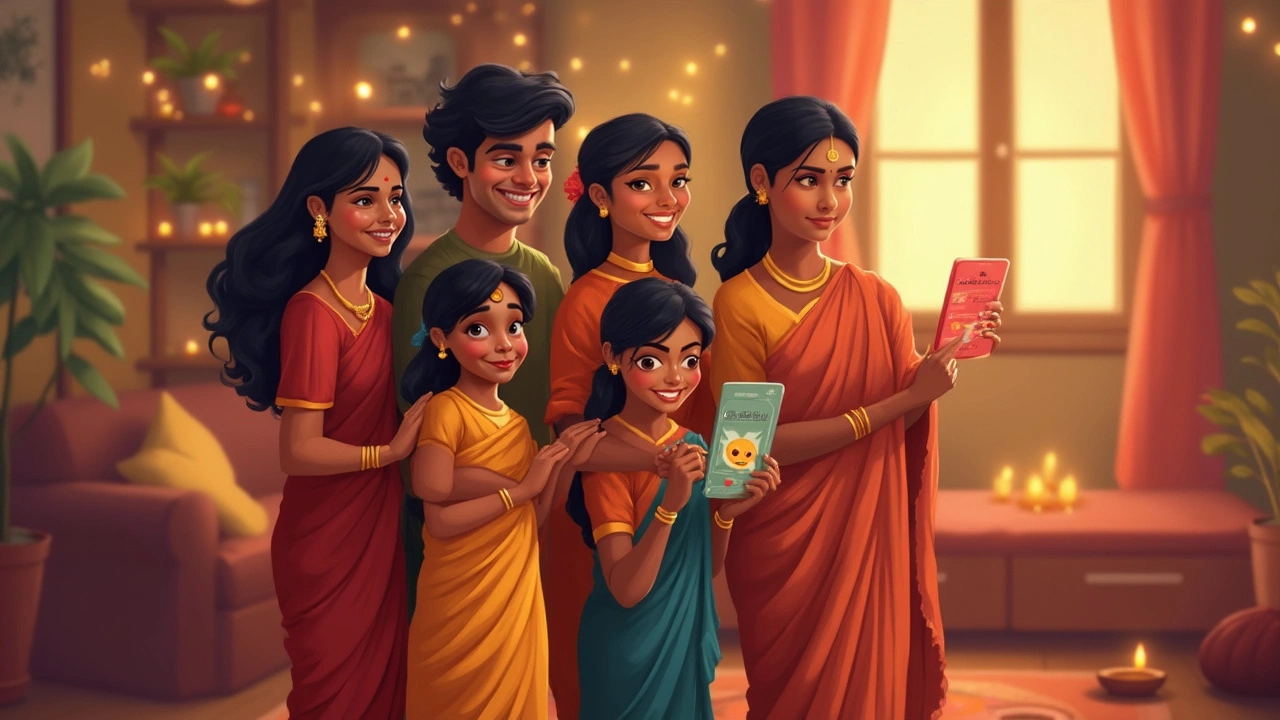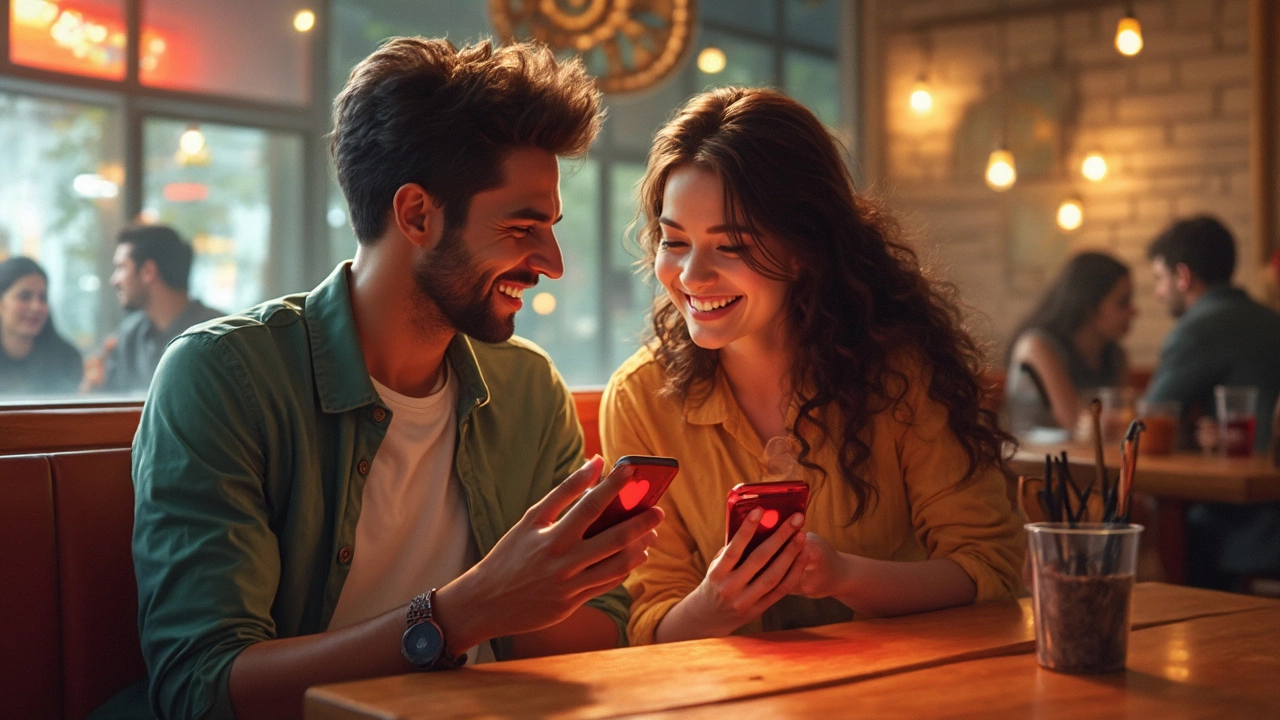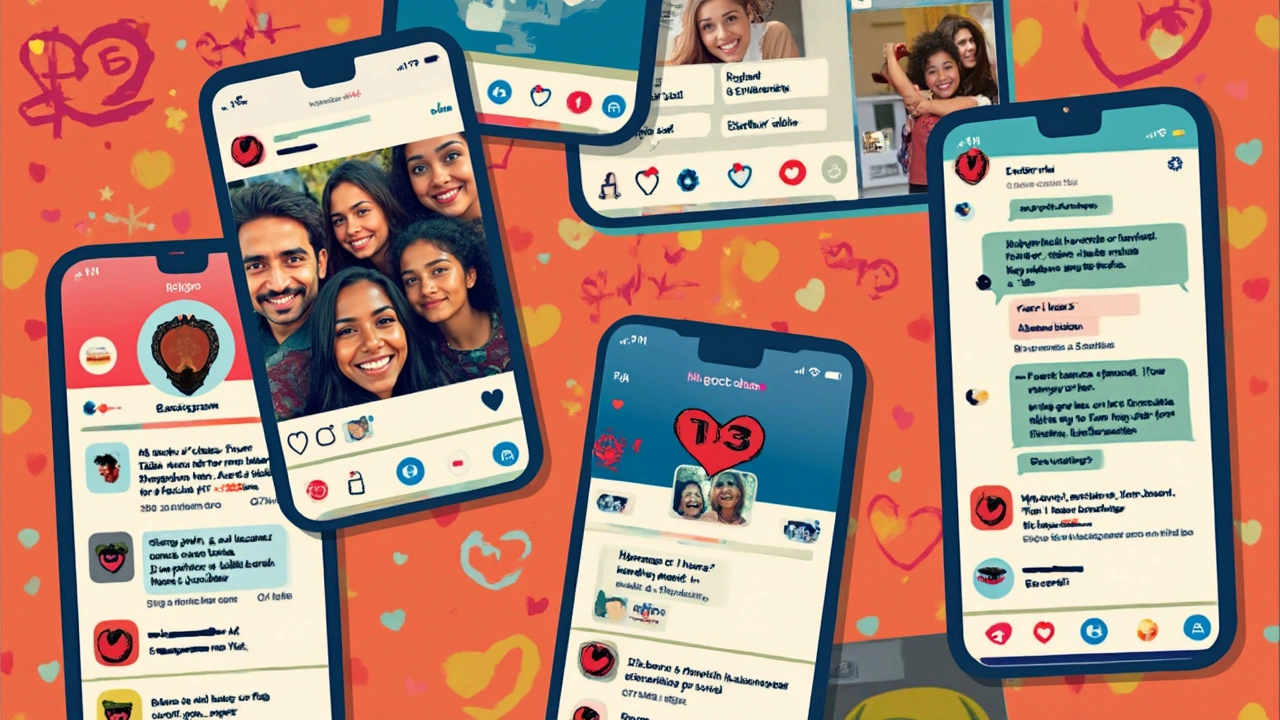
Ever got a message with just <3 and wondered if you’re reading a secret code? You’re not alone. People toss these heart symbols around everywhere—from WhatsApp groups to Instagram captions. But what do they really mean? Why do we use them instead of actual words?
The moment you spot a <3, your brain fills in the shape of a heart. It’s quick, simple, and somehow more personal than typing “I love you”—especially when you aren’t sure if you want to go that far yet. Even my cat Luna gets her own string of <3s in my chats—so trust me, it’s not just for romance.
But here’s where things get interesting. The red heart emoji ❤️ takes the shortcut up a notch. It’s colorful, bold, and perfect for when text just doesn’t cut it. Friends throw it in for good vibes, couples drop it in flirty texts, family members use it to sign off on a message. Little symbol, big feelings.
- Where Did <3 and ❤️ Come From?
- What Do These Symbols Really Mean?
- Talking Love in India's Digital World
- When to Use (or Avoid) <3 and ❤️
- Tips on Sending the Perfect Heart
Where Did <3 and ❤️ Come From?
So, how did a squiggle and a colon start standing in for a heart? Let’s go back to the early days of the internet—think Orkut and early Facebook. People couldn’t just drop a heart emoji because keyboards didn’t have them. Instead, they used <3, which, if you tilt your head, kind of looks like a simple heart shape. It became the go-to for showing affection, approval, or even playful flirting online.
The full-color ❤️ came along when smartphones got fancier. Apple’s iOS update in 2011 put emojis right on the keyboard. Suddenly, you didn’t have to type out <3; you just tapped a button. This change was huge, especially in places like India, where almost everyone messages on WhatsApp multiple times a day. Today, the red heart is one of the top five most used emojis worldwide, according to Unicode stats from 2023.
Let’s look at some quick stats that show just how big these symbols have become:
| Symbol | Year of Origin | First Popular Platform | 2023 Worldwide Usage Rank* |
|---|---|---|---|
| <3 | Late 1990s | IRC/Instant Messaging | Not ranked (now less common) |
| ❤️ (Red Heart) | 2010/2011 | iOS, WhatsApp | 3rd Most Used Emoji |
*Unicode Consortium, Emoji Frequency List, 2023
These days, <3 is a bit old-school but still pops up in chat rooms and gaming. The love status india crowd on Instagram and WhatsApp? They’re all about the big, bright hearts.
What Do These Symbols Really Mean?
At first look, love status india updates with hearts might seem silly or over-the-top. But the truth is, these little symbols—<3 and ❤️—pack a punch when it comes to sharing feelings online. The text heart <3 started taking off back in the early days of SMS and chat apps because, let’s be real, it was quicker to type than “I care about you.” You basically tilt your head and see a heart shape. Simple, but effective.
The red heart emoji ❤️ came later, along with smartphones and better keyboards. Now, it’s all over social media, in status updates, and even professional chats (just be careful—your boss might not get it). It's not just for romance. People use the heart to say thanks, show support, or just wish someone luck.
| Symbol | Usual Meaning | Common Use |
|---|---|---|
| <3 | Affection, friendship, quick love | Text messages, social posts, gaming chats |
| ❤️ | Stronger feelings, care, deep appreciation | Instagram, family groups, relationship status |
But context matters—a lot. A <3 from a friend is cool, but if your crush drops one, it’s suddenly a major deal. Emojis save space and time but don’t always make things clearer. In fact, a 2023 Statista survey found 41% of Indian Gen Zs said heart emojis caused confusion about someone’s real feelings. So don’t be surprised if you’re scratching your head once in a while.
“Emojis let us say things we might not have the courage to write out loud, but their meaning can change depending on who's sending them and how they’re used.” — Dr. Tanya Sharma, Digital Communications Expert
Bottom line: the meaning behind <3 and ❤️ depends on context, your relationship with the person, and maybe even the mood that day. If you’re ever unsure, just ask! It saves a ton of overthinking later.

Talking Love in India's Digital World
If you scroll through Indian social media, it’s impossible to ignore how often love status india vibes pop up, mostly wrapped in <3 and ❤️. In India, family and friends matter a ton—and so do the little ways we show love, even when it’s just online. But here’s the funny part: almost everyone uses these heart symbols, and each one means something a bit different depending on who you’re messaging.
For example, cousins swap hearts in group chats, couples drop them in late-night DMs, and even your tuition teacher might send you a ❤️ for a job well done. In India, using <3 isn’t just about romance. Sometimes, it’s just about respect, good vibes, or plain old affection for your bestie or your mom.
On WhatsApp, heart emojis sneak into status updates, and you’ll find the classic red heart in captions under Bollywood song lyrics. Instagram stories? Packed with hearts, especially during birthdays or on Friendship Day. But the real trick is knowing that not every heart means a wedding proposal—most times, it just means, “I see you, I care.”
People in India send hearts for all sorts of reasons:
- To celebrate wins, like cracking an exam or a work promotion
- To add a sweet touch to morning greetings (especially in family groups)
- To soften bad news or tough advice
- Just to keep a conversation light and friendly
But context matters. If you’re messaging a crush, every <3 or ❤️ has people guessing what it means. Still, in day-to-day chats, they mainly keep things warm and connected, without reading too much into it. If you see family spamming hearts, it’s normal—if your crush sends one, maybe it’s time to pay closer attention!
When to Use (or Avoid) <3 and ❤️
It might look easy to send a heart, but there’s a catch. The meaning of love status india symbols like <3 and ❤️ changes big time depending on who’s on the other side. One wrong move and it turns awkward, or worse, your message gets totally misunderstood.
If you’re texting your crush, slipping in a heart can be a gentle hint—you like them but don’t want to overdo it. On family WhatsApp groups, a heart feels warm and affectionate, never romantic. That’s why you’ll see a <3 after “Good morning, beta!” from your mom, but never from your boss.
- Use <3 or ❤️ with friends for support and encouragement. It’s casual, like saying “I got you.”
- With someone you’re interested in, start small—one heart at the end of a sweet message. Don’t carpet-bomb hearts unless you want to seem desperate.
- Family? Absolutely. It’s the fastest way to sprinkle your chats with love without words.
- At work or with someone you barely know? Maybe don’t. It’s easy to cross wires and make things weird.
You can always watch how others use <3 and ❤️ before joining in. Different circles have their own heart-vibe. Also, if you’re in a group with lots of languages flying around, hearts usually play it safe. Emoji are the universal cheat code.
Here’s a quick look at how people in India use (or avoid) these symbols, based on a small survey of urban folks ages 18-35:
| Chat Type | Use <3 | Use ❤️ | Don’t Use |
|---|---|---|---|
| Close Friends | 85% | 90% | 5% |
| Family | 70% | 80% | 10% |
| Dating or Flirting | 60% | 95% | 2% |
| Work/Professional | 10% | 5% | 85% |
The main thing? Hearts are meant to spread good feelings—but only when you’re sure they’ll land well. When in doubt, start slow, and watch for how your message is received. If you get a heart back, you’re good!

Tips on Sending the Perfect Heart
Nailing the perfect love status india vibe with <3 or ❤️ isn’t as random as it looks. Your timing and the choice of heart symbol matter. One wrong move and you could send mixed signals—awkward, especially in a family or work group. Here’s how to get it right.
- Know your symbol: <3 is more playful and old-school, while ❤️ (red heart emoji) looks modern and bold. Want to keep it casual? Go with <3. Want things to feel warm or romantic? That’s where ❤️ shines.
- Think about your audience: With friends, hearts are totally normal—even with people you don’t know that well. But in work chats or more formal settings in India, best to skip it or use a smiley instead.
- Don’t overdo it: Sending ten hearts in a row doesn’t make you look more loving. In fact, research from a 2023 study by Statista showed 62% of young Indians find too many emojis annoying and less genuine in texts.
- Mix with words: Pairing a heart with a short message (“Congrats! ❤️” or “Miss you! <3”) feels more thoughtful than just dropping the symbol by itself.
- Different colors, different signals: If you’re feeling bold, experiment! A yellow heart (💛) signals friendship, while a purple heart (💜) is popular among BTS fans and young people. But stick to red for romantic talks unless you want to start rumors.
For anyone curious about popular emoji habits in India, here’s a quick snapshot:
| Emoji | Most Common Use | Feels |
|---|---|---|
| <3 | Flirting, inside jokes, friendship texts | Playful, light |
| ❤️ | Romantic chats, supportive replies | Warm, affectionate |
| 💛 | Friends, happy news | Cheerful, friendly |
| 💜 | Fan groups, BTS Army | Trendy, close bond |
Small details really can change the whole message. Keep it real, think about who’s on the other side, and send those hearts like you mean them.